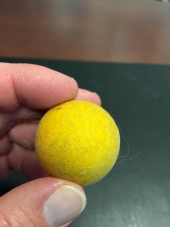
 2
2




 2
2




 2
2




Pecan Media: food forestry and forest garden ebooks
Now available: The Native Persimmon (centennial edition)
 5
5




Megan LaCroix wrote:Hello all,
I have a citrus tree that I think reverted to its rootstock years ago, probably Flying Dragon. It has grown like crazy, puts out wonderful smelling blossoms and lots of fruit. But the fruit isn't palatable. Its sour, bitter and acrid.
I would appreciate any clever suggestions of what I can do with this bountiful harvest of fruit!
Thanks!
Jd
 1
1




Pecan Media: food forestry and forest garden ebooks
Now available: The Native Persimmon (centennial edition)
 3
3




Dan Boone wrote:What’s the easiest method you’ve found for mass juicing?
Jd
 2
2




Greetings from Brambly Ridge





Be joyful, though you have considered all the facts. ~Wendell Berry
 3
3




Check out Redhawk's soil series: https://permies.com/wiki/redhawk-soil
 1
1




 3
3




Sebastian Köln wrote:The resin in the skin of trifoliate orange can be quite… terrible if overdosed. I will probably need a few more years until the smell doesn't introduce nausea for me.
 5
5




I am only one, but still I am one. I cannot do everything, but still I can do something; and because I cannot do everything, I will not refuse to do something that I can do. (E.E.Hale)
 4
4





The trifoliate orange ... has a green skin and is very sour. It is usually salted and fermented to produce a sour pickle, which is used as a flavoring agent or added to medicines.
Pecan Media: food forestry and forest garden ebooks
Now available: The Native Persimmon (centennial edition)

| I agree. Here's the link: http://stoves2.com |




